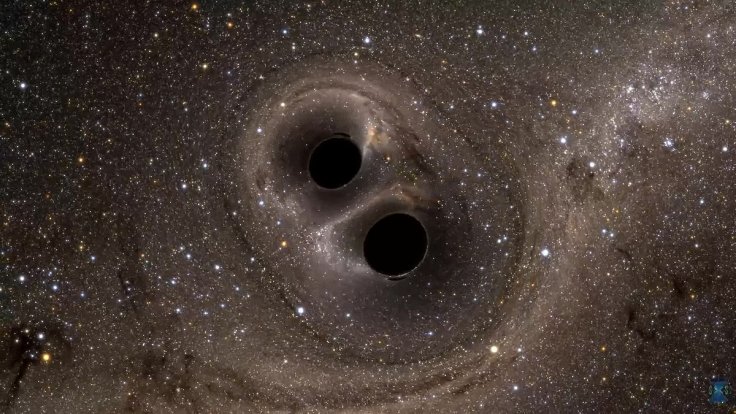
A team of scientists was able to capture the sound made by two black holes after they collided with each other. The scientists were also able to record changes in the sound as the black holes began to merge.
As one of the most massive objects in the universe, black holes are known to grow up to billions of times heavier than the Sun. When these objects crash into one another, the collision causes gravitational waves to radiate across space.
Recently, scientists from the Laser Interferometer Gravitational-Wave Observatory (LIGO) in the U.S. were able to detect the gravitational waves produced by the collision of two black holes. According to the scientists, the collision happened more than a billion light-years away from Earth's neighborhood.
After analyzing the gravitational waves, the scientists from LIGO were able to match their frequencies and convert them into sound. The sound was then presented through a video shared by LIGO on YouTube.
"Gravitational waves sent out from a pair of colliding black holes have been converted to sound waves, as heard in this animation," the scientists explained in a statement released by the National Science Foundation.
The scientists noted that the collision occurred between two galaxies that were about 30 times heavier than the Sun. The energy released from the major cosmic event was 50 times greater than that of all the known stars in the universe.
"LIGO observed gravitational waves from the merger of two black holes, each about 30 times the mass of our sun," the scientists explained. "The incredibly powerful event, which released 50 times more energy than all the stars in the observable universe, lasted only fractions of a second."
The scientists noted that the animation features two versions of the sound from the black hole collision. The first one, which has a lower frequency, matches that of the gravitational waves produced by the incident while the second one has an adjusted frequency to fit within the hearing range of humans.
The scientists also pointed out that strange beeping sounds can be heard towards the end of each sound bite. They explained that these represent the changes in the frequency as the two black holes begin to merge following their collision.
"As the black holes spiral closer and closer in together, the frequency of the gravitational waves increases," they explained. "Scientists call these sounds 'chirps,' because some events that generate gravitation waves would sound like a bird's chirp.









